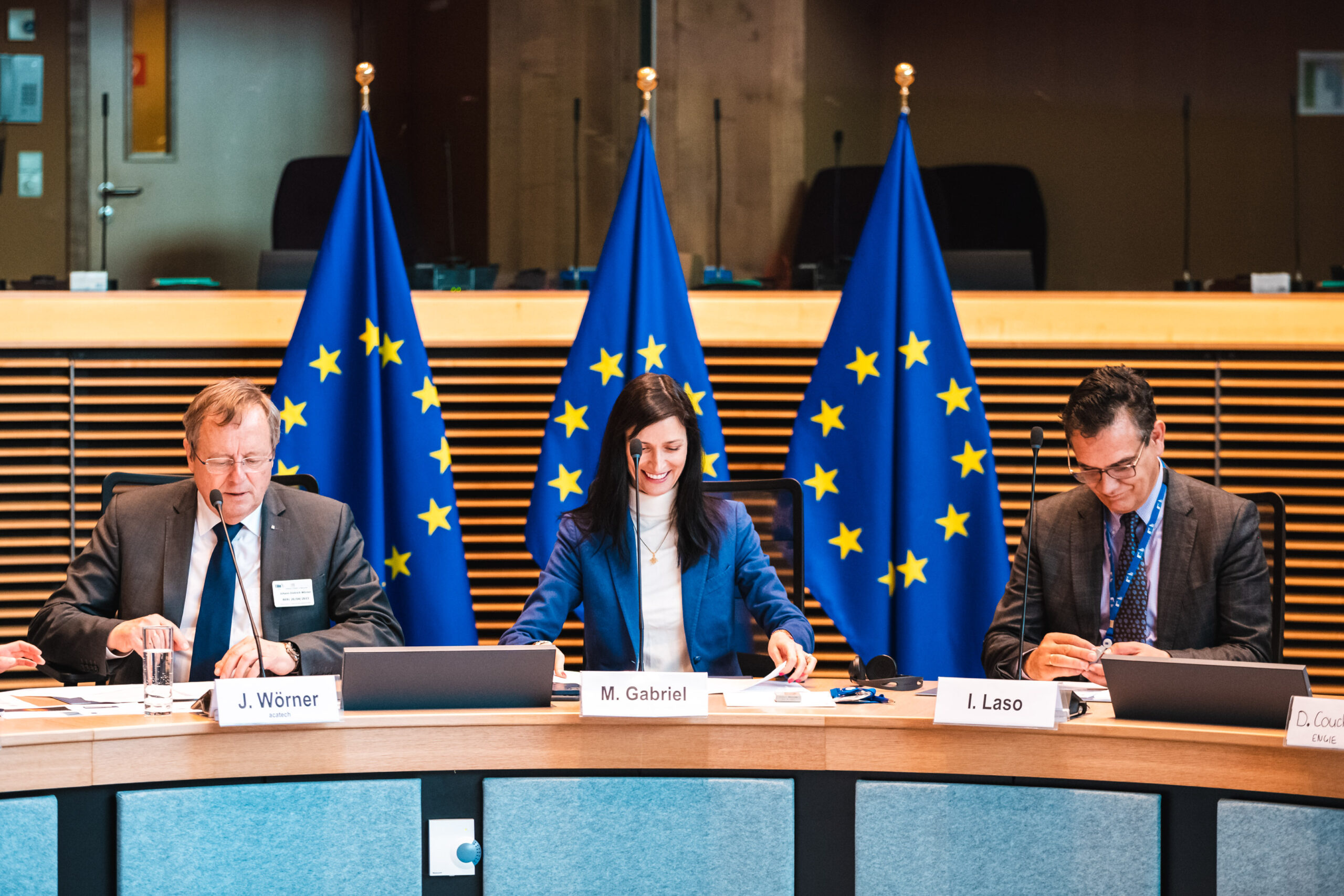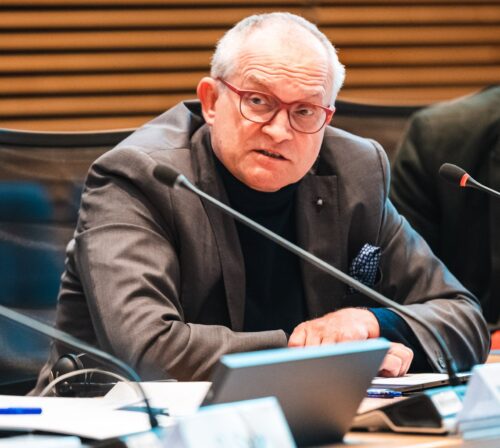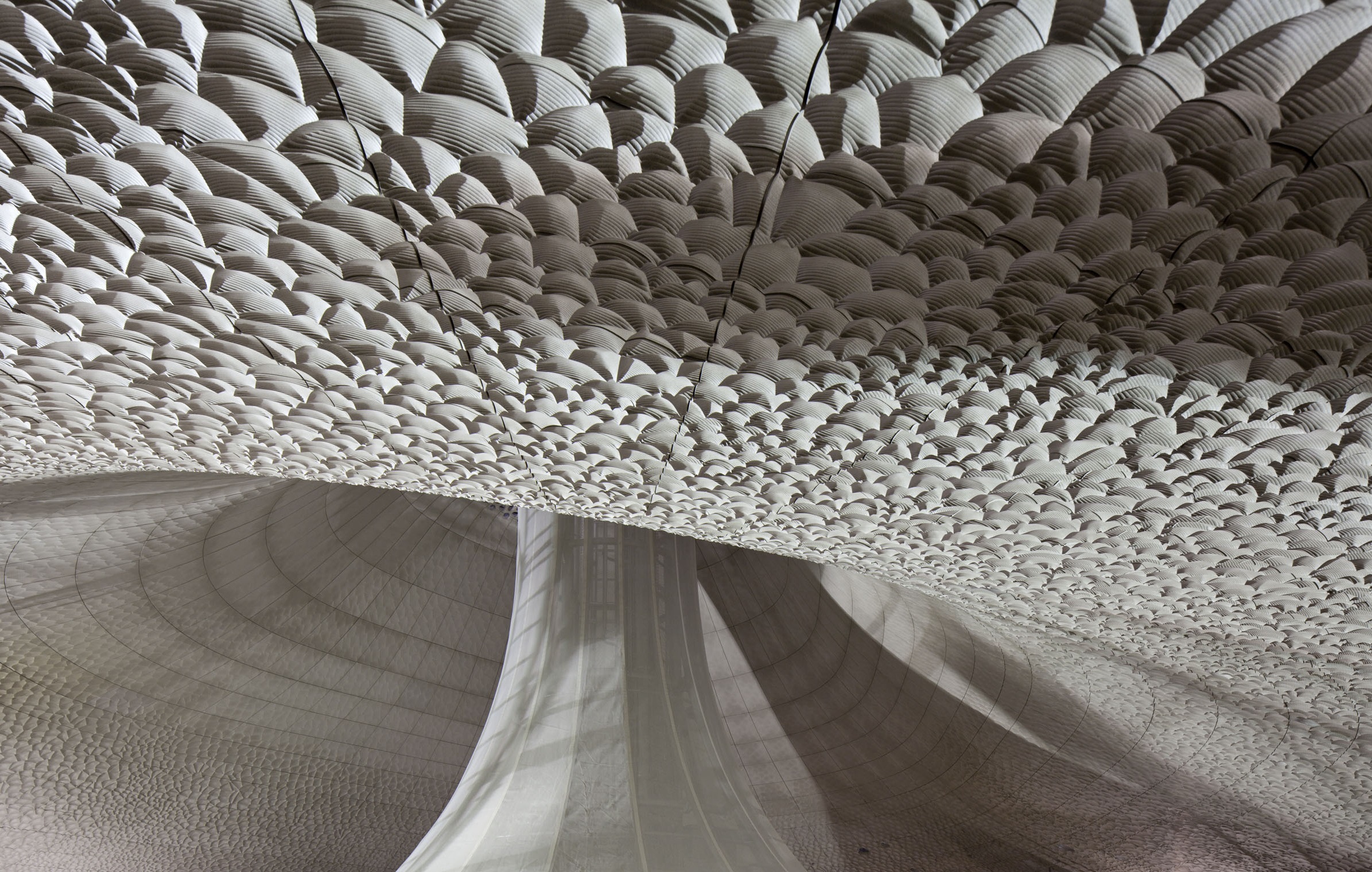Unleashing entrepreneurial innovation potential as the linchpin of European climate policy

Brussels, 06 June 2023
At the inaugural Meeting of the European Sounding Board on Innovation convened by EU Commissioner for Research and Innovation Marya Gabriel acatech Vice President Christoph M. Schmidt represented his point of view: In light of multiple crises and long-term challenges, especially climate change and geopolitical fragmentation, the EU needs to define its own ambitious and consistent strategy. It should consistently be based on the EU’s own strengths and particularly aim at unleashing entrepreneurial innovation potential. A guest commentary.
Among the multitude of crises and long-term challenges the world is facing today, climate change and geopolitical fragmentation are arguably the most prominent problems. Thus, the European Union (EU) needs to define its own ambitious and consistent strategy to position itself as an anchor of liberal democracy, an engine of material prosperity, and a protagonist of the transition to global sustainability.
With its European Innovation Agenda the European Union (EU) has taken an important step towards achieving these objectives, since it rightfully builds on Europe‘s strong academic and industrial base, and it commendably emphasizes both the role of conditions conducive to entrepreneurial activity and the rich availability of human capital as important drivers for innovation.
European companies as enablers of the post-fossil era
This is all the more important, as innovation is not only at the heart of prosperity growth in general, it is also the key to a successful sustainability transition. With respect to the most pressing issue of mitigating of climate change, European economies account only for limited global climate gas emissions, and they are also providing economic prosperity in a comparatively emission-effective way.
Thus, a responsible European approach to climate policy needs to be two-pronged: First, the EU needs to adamantly pursue the defossilisation of its energy systems, including all sorts of actors and activities and encompassing all regions, i.e. delivering on the ambition of European climate neutrality remains indispensable. Otherwise, the EU’s push for cooperative global climate policy would forfeit its credibility.
Second, and at least as important, European companies need to be at the heart of providing the technical solutions that enable defossilisation to be combined with prosperity growth: Only then will it be possible to secure Europe’s material prosperity. And only if these solutions become available along the way, there will be hope for global climate neutrality, since this will require all nations to participate voluntarily in in this global endeavour.
Technological progress could make sure that defossilisation and economic development go hand in hand, and that economies in the global south will embrace defossilisation not despite, but because of their quest for further economic development. The EU’s (innovation) policy is called upon to create the preconditions that enable European companies to establish themselves by their own efforts as facilitators of industry-based worldwide growth in the post-fossil era.
Bolstering own strengths
The EU would be well-advised to focus on its genuine comparative advantages: strong industrial companies that are defining the technological frontiers in many fields, based on a strong symbiosis with a well-trained workforce and strong academic institutions. Currently, the EU‘s most important task would be to unleash their innovative potential even further, especially by completing its internal market at last.
The EU’s best response to other economies’ partially aggressive industrial policies would consist in providing in Europe the best conditions for entrepreneurial success: a well-functioning infrastructure, a lean and digitized administration, a highly competent work force, palatable corporate taxes, and transparent and non-discriminatory research and innovation policy.
Christoph M. Schmidt, President of RWI, acatech Vice President






